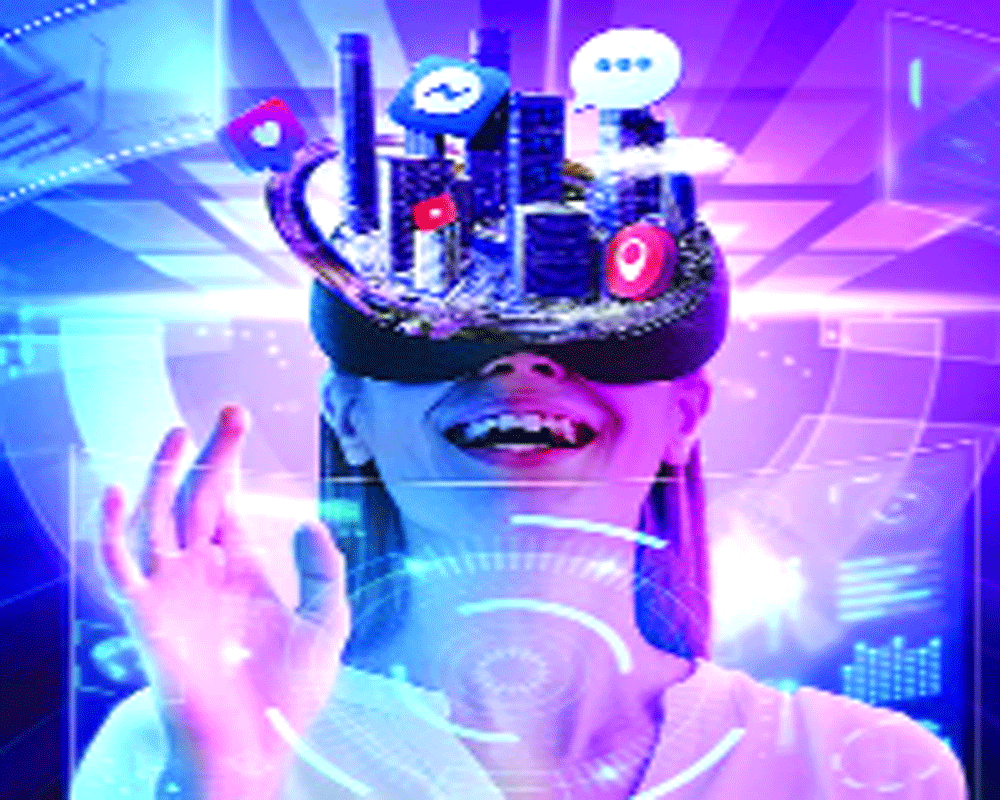The metaverse brings forth a new realm of possibilities, presenting unique challenges and opportunities
The concept of the metaverse has gained significant attention in recent years, with its potential to revolutionize the way we live, work, and interact. As technology continues to advance rapidly, the metaverse offers a virtual environment where individuals can engage, collaborate, and conduct business. From an HR, skilling, and employee perspective, the metaverse brings forth a new realm of possibilities, presenting unique challenges and opportunities.
Impact on Work
The metaverse refers to a collective virtual shared space; merging physical and digital realities. Within this space, individuals can assume digital avatars and engage in various activities such as attending virtual meetings, conferences, and socializing. Working in the metaverse offers several advantages, including increased accessibility, flexibility, and enhanced collaboration regardless of geographical constraints. The HR department plays a crucial role in managing this shift by adapting recruitment, onboarding, and performance evaluation processes to the virtual environment.
Skilling in Metaverse
The metaverse demands a fresh set of skills to navigate and thrive in this digital ecosystem. HR departments must work closely with learning and development teams to identify the skills required for employees to succeed in the metaverse.
Skills such as virtual collaboration, digital communication, adaptability, and virtual presence management become essential. HR professionals should proactively design training programs, workshops, and immersive experiences that allow employees to acquire these skills.
The Future of Work
The metaverse presents exciting possibilities for the future of work. It enables remote collaboration, global networking, and access to a vast pool of talent. HR professionals need to stay abreast of technological advancements and continuously evolve their strategies to adapt to this new paradigm. Companies that embrace the metaverse and prioritize skilling initiatives will have a competitive edge in attracting and retaining top talent. As the metaverse evolves, HR's role will extend beyond traditional boundaries, emphasizing the importance of fostering a digital-native workforce.
According to a report by PwC, the metaverse economy is projected to reach a value of $1.4 trillion by 2030. This rapid growth presents significant opportunities for businesses and workers alike. The report suggests that the metaverse could create around 400,000 new jobs globally by 2030, spanning various industries such as software development, design, content creation, and virtual experience management.
In terms of skilling, a study conducted by the World Economic Forum highlighted the potential of virtual reality-based training programs. The study found that VR training can improve learning retention rates by up to 80% compared to traditional methods. Furthermore, the immersive nature of the metaverse allows for real-time feedback, personalized learning paths, and collaborative experiences, enhancing the effectiveness of skill development initiatives.
Working in the metaverse offers HR professionals, employees, and the skilling landscape a transformative opportunity. Embracing this virtual environment requires HR departments to adapt their practices, redefine skill requirements, and nurture an engaging employee experience. By focusing on skilling initiatives, employee well-being, and leveraging immersive technologies, organizations can unlock the vast potential of the metaverse.
As we venture further into this digital frontier, HR professionals must remain agile and proactive, driving the future of work in the metaverse with a human-centric approach.
(The writer is a Co-Founder, Executive Director, and Chief People Officer of BYLD Group)
























